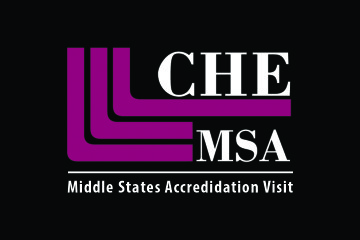Urban & Rural Values Dialogue Fosters Community Discussion
On Wednesday, April 19, “Urban and Rural Values”, a dialogue, was held at the City of Frostburg’s Community Center. This dialogue is part of several events designed to encourage discussion between all residents of Allegany County. The event was cohosted by the Communication Leadership Lab based out of Frostburg State University, in collaboration with the Maryland Commission on Civil Rights (MCCR) as well as members from Leaders of a Beautiful Struggle (LBS), a grassroots think-tank based out of Baltimore, MD.
The event drew all different members of the community, including students from Allegany College of Maryland, FSU students, and Allegany county residents, all eager to discuss some of the issues facing the area. When arriving, participants were randomly split into two groups based on the color of their name tag. They were then encouraged to enjoy food provided by Shift, a local restaurant, before the dialogue officially began. In her opening remarks Dr. Elisha Ruminski, Professor of Communication and Leadership Studies, encouraged all that,“tonight we want to have important conversations, and we do not have to know where we are going.”
The night then began as groups of about 15 started their conversations. Facilitated by professionals, these conversations are meant to be productive and helpful, so ground rules were set from the beginning. Tara Taylor, from MCCR, facilitated one of the groups and explained that rules are there for a reason. Taylor says, “these rules are guidelines to ensure everyone here feels comfortable sharing and that their ideas are valued.” The table conversations began around individuals introducing themselves, and where they are from. Some only offered the county, others the city, and a few the origin of their ancestors. Although everyone at the tables came from different geographical locations, each is a permanent or semi permanent resident of Allegany County.
Moving on from introductions, the dialogue jumped right into its theme “what is urban? What is rural? And what do each of those worlds value?” As group members shared, another facilitator wrote ideas on the board, and as some were echoed, a tally was added to show those in agreement. At first, it seemed many people believed there was no possible way that these two regions may share similar values. But after observing, it was easy to see that although the life styles from both regions are different, many of the values aren’t.
Throughout the night, individuals shared their personal experiences with others at the table. Many even got emotional about personal situations in which they felt unwelcome in their own town. Most of the conversations revolved around race and gender, and the tensions felt with regards to social issues and opinions held about them. After an hour or so, the facilitators gave each group a task: to come up with ideas for us to work towards a solution. Deyvon Love, from LBS, reminded the crowd that “we are not only here to address these problems on an individual level, but to look at what we can do at an institutional level, and invest our time in that.”
These types of conversations are important to our community because of the melting pot that we live in. The University draws so many people from various backgrounds into a small area, which means that there is a large potential for clashes within the community. Students feel unwelcome by the local residents, and local residents don’t know how to feel about these seasonal residents. Some in attendance attributed these attitudes to increasing diversity on our demographics. In a student body of 5,756, 47% enrolled are classified as minorities. The University’s Policy on Diversity states;
“The community declares fostering diversity and respect for difference to be a fundamental goal of higher education, ranking among the highest priorities of this institution. Therefore, the University community takes the unequivocal position that racist practices, or any action, or institutional structure or process, that has for its purpose the subordination of a person or a group based on race, color, disability, genetic information, creed, marital status, national origin, sex, age, or sexual orientation, will not be tolerated.”
But the community they address is much more than just the boundaries of the University. It extends onto Main Street, down into LaVale and Cumberland, and out towards Lonaconing. So how can we, a community from Western Maryland, help create values and understanding between the cultures that come to the area? Several members of the dialogue suggested there should be events that celebrate the current culture of the area, not just the past. Others want to see more dialogue and interaction.
However, these efforts will only start to cause progress if more people are on board with the idea of having honest conversations. Students must realize that although they eventually leave this area with bigger dreams in mind, doing what they can to improve this part of Allegany County will never go unnoticed.
Want to join the conversation?
For more information please visit:
http://mccr.maryland.gov/Pages/default.aspx
Also, be sure to come out to the Communication Leadership Lab’s next event, “Eat, Lean, Shift”, on May 8.



